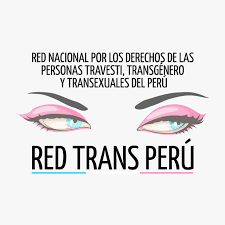Overview
The HIV epidemic in Peru is concentrated in two key populations, with an estimated prevalence in transgender communities of 21% in 2011. Due to a lack of up-to-date research, it’s impossible to say where the current expenditure on HIV funding is being allocated. However, based on best estimates, spending on prevention aimed at key populations has not had a significant increase, with a gap identified in 2012 in coverage and financing for key populations.
Studies in the last 10 years have shown the seriousness of the burden of HIV morbidity among transgender women, who are in urgent need of prevention, treatment and care services. An analysis of the Continuum of Care among men who have sex with men (MSM) and transgender women in Peru found that the most significant barriers along this continuum are the low rates of access to HIV testing. It was estimated that only 27% of diagnosed persons within these key populations knew their status, with only 18% achieving viral suppression. These figures reveal the need for active promotion and facilitation of tests among MSM and transgender women to improve the knowledge of their serostatus, as well as mechanisms to ensure access to treatment and prevent people from disappearing before or after starting treatment.
In Peru, there is a National Strategic Plan (PEM 2015-2019), which has been built from the active participation of the sectors including civil society, affected population and key populations. Currently, the new PEM 2019-2022 is in the final stages of approval by the highest levels of the Peruvian government. However, gender and sexual diversity approaches are absent in the health services. Stigma and discrimination are still in force in Peru. Transgender women often suffer violations of their human rights motivated by hatred and contempt. Efforts to generate enabling environments for the protection of their human rights in the context of HIV are essential.
In order to enable greater engagement of transgender communities in Global Fund country processes and funding grant proposals, GATE hosted a 2-day workshop on 11-12 December 2018. The outcome of this workshop was a Technical Assistance proposal to the Global Fund to provide necessary capacity-building support to promote transgender community inclusion in decision-making positions within the Peruvian Country Coordinating Mechanism, CONAMUSA.

Case Studies
Jesse Vilela, Leader of Sociedad Trans FTM Perú
Kiara, Member of Casa Trans Zuleymi
In this workshop, as most participants were unfamiliar with the situation facing trans women living with HIV in prison, I was provided with an opportunity to educate them on this by sharing my own experience. Because of the experience I had in Lurigancho Prison, I want to help my friends who are still in jail by improving the treatment of trans women there.
There needs to be a specific HIV prevention and treatment program for trans women deprived of their freedom. These women have been forgotten.
Kiara
Gianna Garcia, Journalist and Academic
I work at the Cayetano Heredia University. The university runs an LGTBI Human Rights Observatory that is part of the UNICAS project, to encourage diversity and knowledge about trans people. I work a lot to sensitize heterosexual people in environments of public service for the general public: health care centers, ministries, attention centers, and so on. At some point they will be exposed to a trans person, and ideally they should know how to treat and interact with one.
I am an activist because I think it is critical for us to remain united and show that we can do many things together, because I long for justice and because I believe that we deserve a quality of life just like everyone else.
Gianna Garcia
Sol Luciana Solso Espinoza, Member of Red Trans Perú
In Peru, we struggle fundamentally against discrimination and transphobia towards the trans population and the lack of awareness of society towards our population. I am an activist because I dream that at some point in my country or in Latin America there will be equality in laws for all; that’s it.
Donors, I ask you to take our population into account and to continue supporting us because we need equality, we need rights, gender identity and an improved lifestyle and health.
Sol Luciana Solsol Espinoza





